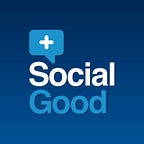Looking Ahead to 2030: Addressing The Challenges Faced by Vulnerable Groups During the Pandemic and How You Can Do Your Part
By: Clarisse Joy “Clary” Mañabat
The United Nations General Assembly (UNGA) convened again, with most of its events taking place online. This year’s UNGA and celebrations have again showcased young people, with youth conversing and interviewing world leaders, youth having a seat at the table, youth organizing events to call for action, and youth from all around the world attending and intently listening to our world leaders.
For this year’s UNGA, the +SocialGood community continued its fireside chat, UNGA Labs, and social media activation of its #RoadtoUNGA campaign.
We started the #RoadtoUNGA as a preparation for the big event and to call to attention like-minded individuals and organizations to tune in and be part of the 76th UNGA. As one of the speakers during the #RoadtoUNGA, I was fortunate enough to speak on behalf of my fellow youth and the Global South. Together with Cynthia Yue, the 10th UNA-USA Youth Observer to the UN, +SocialGood Advisors Ruba Al Zu’bi and Ruth Aine, and +SocialGood Connectors Priyanka Jaisinghani and Swarnima Shrestha, we dived deep into the issues that children, youth, and women face today and shared our past and current initiatives to mitigate challenges and change the status quo.
From being on the frontline of healthcare, not having a stable internet connection, experiencing vaccine inequality, and adverse impacts of climate change, it is undeniable that children, youth, and women faced drastic changes during this pandemic.
According to UNICEF, more than 168 million children have lost the opportunity to learn at school due to COVID-19. This leads to additional challenges, such as child marriages, lack of access to digital learning, domestic violence, and female genital mutilation. Moreover, children with special needs or disabilities are constantly denied access to schools during the pandemic.
UNICEF also found that 27% of the population between the ages of 13 and29 years old are anxious while 15% of them are depressed. The report also showed that young women are more vulnerable than young men. Although the population for the data does not represent the experience of all young individuals around the world, it is still alarming that the COVID-19 pandemic severely impacted the mental health of young individuals.
Due to worldwide restrictions, more and more women have experienced domestic violence. Not only will the cases of domestic violence rise, but it will also decrease the progress towards ending gender-based violence by 2030. One-third of efforts and progress will be reduced towards ending violence against women, according to the United Nations Population Fund (UNFPA). Girls and women living in least developed countries are most at risk.
These trends mentioned above are not even the tip of the iceberg. Although there are an increasing number of countries that have adopted laws and regulations to protect children, youth, and women, this is not nearly enough. There is still more work that needs to be done. Laws, policies, and the signing of agreements will only remain on paper without prompt and full action. With this, I suggest and wholly demand individuals, organizations, communities, societies, national and international agencies, and government to start their work today. These vulnerable groups remained silent unintentionally because of a lack of access to information, assistance, and fear of being misjudged.
No one should be left behind in these trying times. Here are some ways to take action:
- Raise discussions about these issues or undiscussed topics with your family and friends.
- Look for ways to join organizations or support causes advancing the rights and welfare of these vulnerable groups. To whoever is reading this, I humbly ask you to spread these helpline numbers to your community and spheres of influence.
- Demand justice and equality via your governments to allocate budget to children, youth, and women’s rights and welfare, and provide assistance.
- Demand that your governments pass laws protecting these groups, and implement these laws and regulations thoroughly.
- We cannot move ahead to 2030 by leaving them behind. We should not wait for tomorrow to start our actions towards equality.
